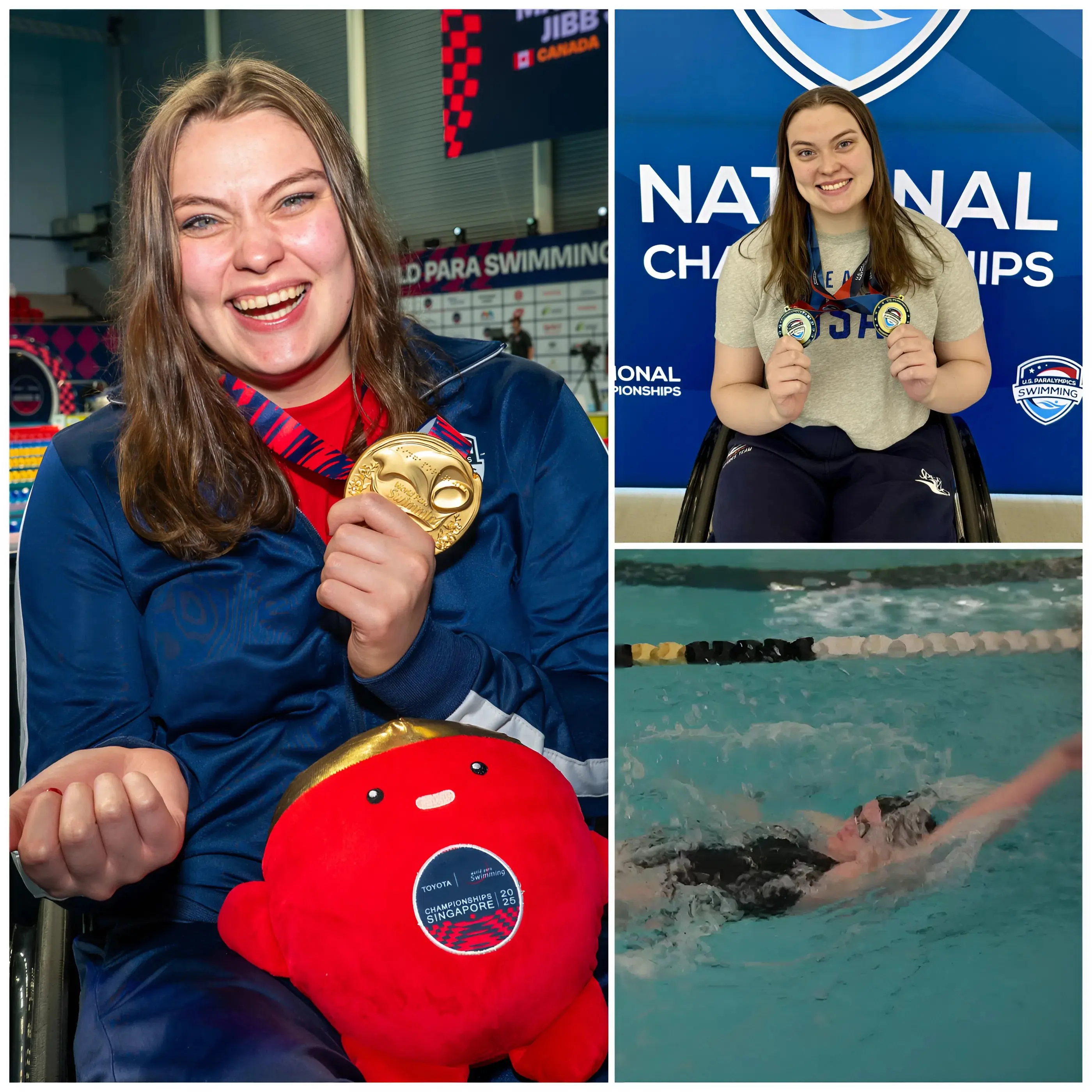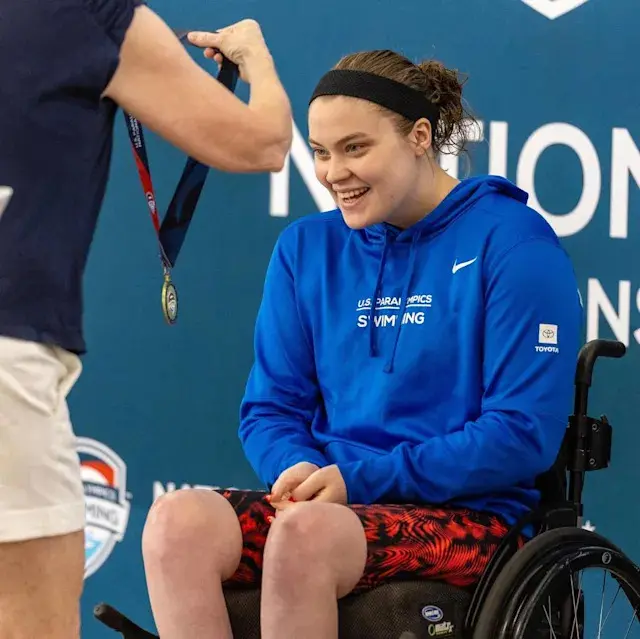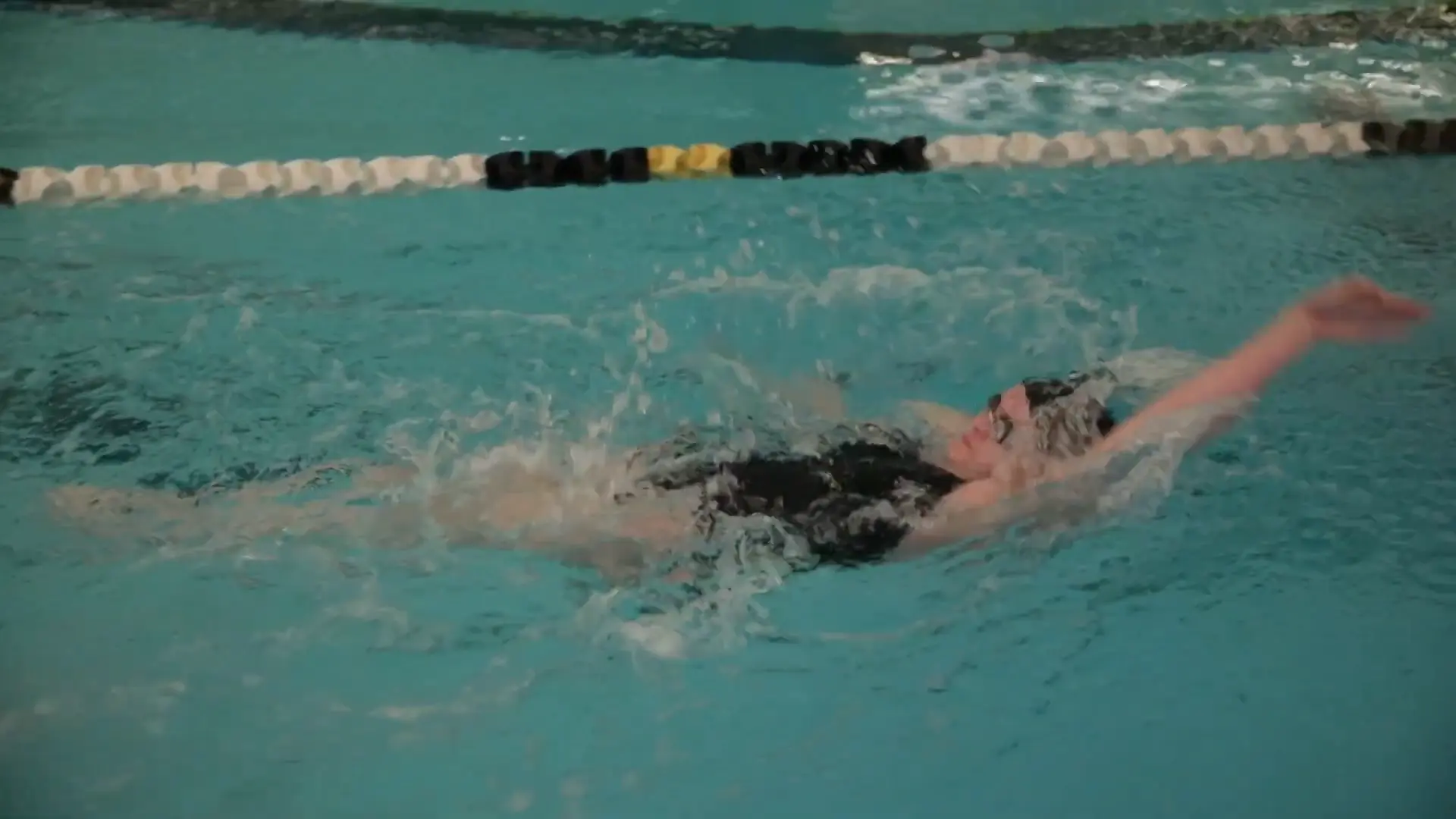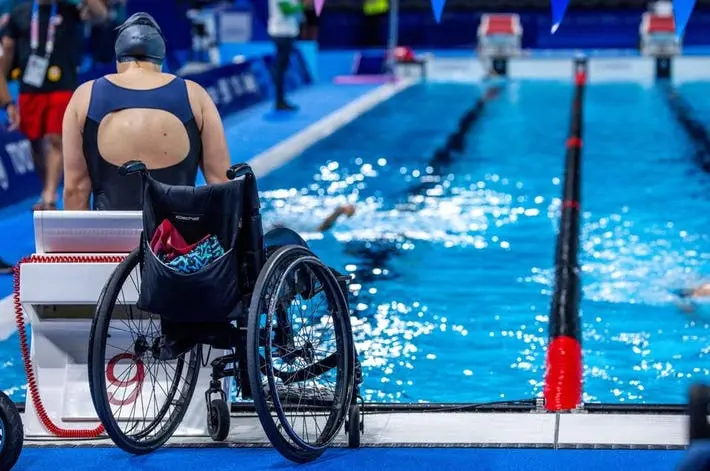From Cruel Taunts to Record-Breaking Triumph: How Katie Kubiak’s Unbreakable Spirit Rewrote Para-Swimming History

In the high-stakes world of competitive swimming, where every stroke counts and the water can feel like an unforgiving judge, few stories capture the raw essence of human resilience quite like that of Katie Kubiak. Just a few years ago, the young athlete from Mequon, Wisconsin, found herself on the receiving end of words that could shatter even the strongest resolve. “You’re not doing anything, go away you crap-ed bitch!” The harsh, sarcastic barb, hurled during a moment of vulnerability, echoed in her mind like a relentless wave. But on a sweltering June day in 2025 at the U.S. Paralympics Swimming National Championships in Boise, Idaho, Kubiak didn’t just silence the doubters—she drowned them out with a performance that etched her name into the annals of American para-sports history. In a single, electrifying day, she shattered three world records, turning personal pain into global inspiration and igniting a firestorm of debate about bullying, disability, and the power of perseverance.
Kubiak, a 22-year-old rising star competing in the S4 classification for swimmers with limb deficiencies, entered the championships fresh off her junior year at New York University. Born with a congenital condition that affects her arms, she had already shown flashes of brilliance: five American records in her debut meet, a quintet of national titles in December 2024, and two world records at an international event in April 2025. Yet nothing prepared the swimming world for what unfolded on the second night of the three-day showdown at Idaho Central Arena. As the crowd buzzed with anticipation, Kubiak dove into the pool for the women’s 100-meter backstroke S4. Her powerful kicks propelled her through the water, her focus unbreakable despite the multi-class format that pitted her against athletes of varying abilities, with results determined by World Para Swimming points.

When she touched the wall at 1:32.72, the scoreboard lit up like fireworks: a new world record, slashing more than 11 seconds off the previous mark of 1:43.91 held by a German swimmer since 2022. The arena erupted. But Kubiak wasn’t done. Mere hours later, in the 50-meter freestyle S4, she exploded off the blocks, her streamlined form slicing through the lanes to clock 36.44 seconds—eclipsing the old record of 36.92 by a razor-thin but monumental margin. Teammates and coaches swarmed her, but the real magic came in the finale: the 200-meter freestyle S4. With exhaustion creeping in, Kubiak summoned depths of grit most could only imagine, finishing in 2:44.97. That time obliterated the prior world record by 6.56 seconds, a gap so wide it felt like she was swimming in a different ocean altogether. Three records in one day—not over a career, not over a meet, but in the span of hours. It was the kind of feat that doesn’t just win races; it redefines what’s possible for para-athletes.
As the final buzzer sounded, Kubiak climbed out of the pool, water streaming down her face, and flashed that signature winning smile—the one that radiates quiet defiance. Wrapped in a towel, microphone in hand, she leaned into the post-race interview and delivered a nine-word message that would soon go viral: “To anyone who ever doubted me: watch me fly now.” Simple, searing, and straight from the heart. Within minutes, clips flooded social media, racking up millions of views. Parents shared it in support groups for kids with disabilities, sharing tales of their own battles against playground cruelty. Celebrities like Paralympic legend Trischa Zorn-Hudson retweeted it with captions like “This is why we fight.” On TikTok and Instagram, #WatchMeFly trended, spawning user-generated videos of everyday triumphs over adversity. By morning, it had pierced the mainstream, appearing on ESPN’s SportsCenter and even CNN’s human interest segments, where anchors choked up reading her words aloud.

The ripple effect was immediate and profound. Donations to para-swimming programs surged by 40% in the following week, according to U.S. Paralympics Swimming officials. Schools across the U.S. incorporated Kubiak’s story into anti-bullying curricula, with one Wisconsin district reporting a 25% drop in reported incidents after a district-wide assembly. Her message became a rallying cry for the disability rights movement, echoing the ethos of activists who argue that true barriers aren’t physical—they’re the toxic narratives society imposes. “Katie’s not just swimming for gold; she’s swimming for every kid told they’re ‘less than,'” said Jessica Long, the 18-time Paralympic gold medalist who mentored Kubiak ahead of the event.
Yet, amid the tears and triumphs, controversy simmered. Not everyone celebrated. Online trolls and skeptics flooded comment sections, questioning the legitimacy of para-classifications and accusing the system of inflating records for “feel-good” stories. “If she’s breaking records this easily, is it really fair?” one viral X post snarled, sparking heated threads that divided fans. Defenders fired back, pointing to the rigorous World Para Swimming points system that levels the playing field across impairments. The debate spilled into op-eds in The New York Times and The Guardian, forcing a broader reckoning: In a world obsessed with elite performance, how do we honor diverse abilities without pitting them against each other? Kubiak herself waded in gracefully during a press conference, saying, “Records are numbers, but the real win is proving that pain doesn’t define you—it fuels you.”

As the dust settles, Kubiak’s gaze is fixed on the horizon. Selected for Team USA’s roster for the 2025 World Para Swimming Championships in Singapore, she’s already hinting at more history in the making. Her coach credits a laser-focused training regimen—honing weak starts and endurance drills—for the breakthrough, but Kubiak knows the truth runs deeper. Those cruel words from her past? They’re buried under layers of chlorine and chlorophyl-like resolve. In a sport where vulnerability meets velocity, Katie Kubiak has transformed from target to titan. Her story isn’t just about swimming faster; it’s about rising higher. And as she prepares to “fly” into Singapore’s waters, one thing is clear: the world is watching, weeping, and—finally—believing.